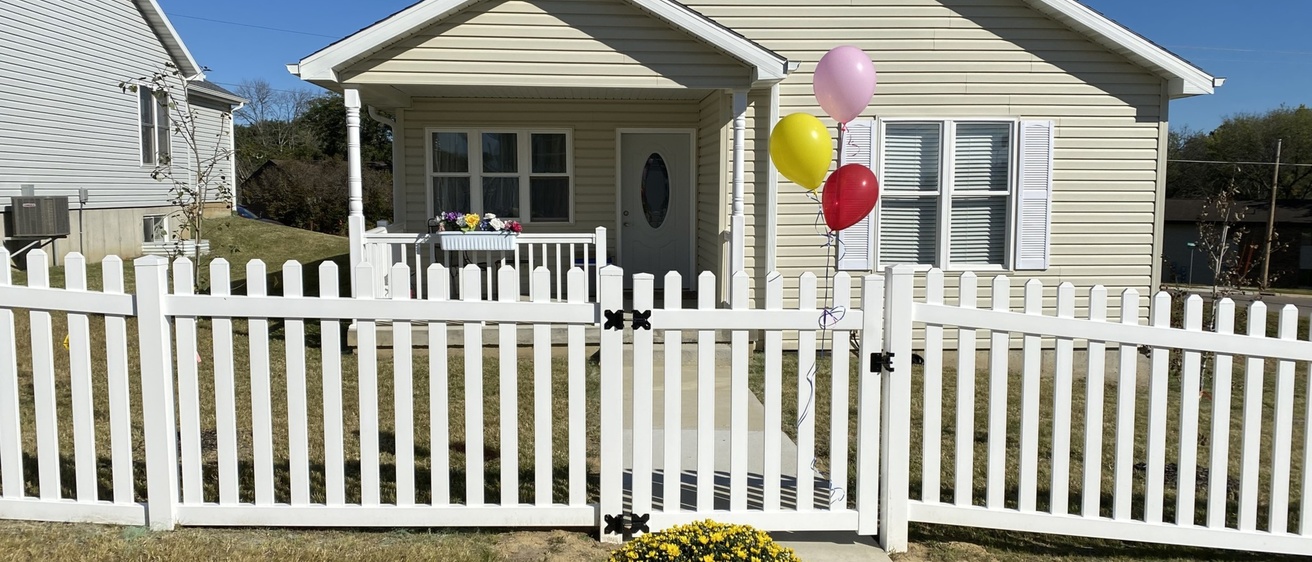In Fall 2022, the ribbon was cut on a new residential development in Maquoketa, Iowa. What makes the homes unique are their price tags and the extensive slate of partners that coalesced to bring them into existence.
Bear River Cottages is a pocket neighborhood of 10 homes built around a shared green space and located in the northwest quadrant of Maquoketa. The two- and three-bedroom homes, which all promptly sold and have current residents, are each about 1,000 square feet and cost $150,000.
Capstone project addresses housing needs

Original designs for the neighborhood were created by University of Iowa civil and environmental engineering students in conjunction with the Iowa Initiative for Sustainable Studies’ (IISC) partnership with the East Central Intergovernmental Association (ECIA). Morgan Kinney (18BSE), Mayra Corona (18BSE), and Tanner Schropp (18BSE) worked on the plans for their senior capstone project during the 2017-18 academic year.
The project was part of a request by the city of Maquoketa to attract more families to the area and provide much-needed affordable housing. Via a 2015 housing study, city administrators knew they would need at least 300 single-family, workforce-affordable homes by 2025.
The town, which has about 6,000 residents and is located equidistance between the larger communities of Dubuque and Davenport, attracts visitors to its namesake caves and other outdoor activities. Like many smaller Iowa communities, it struggles to maintain and grow its population.
Student plans reduce overall costs
According to current Maquoketa City Manager Joshua Boldt, what the city wanted from the students was challenging: “You had to create as lean of a home as possible while still giving each structure its own character.” He added that each home needed to be the same square footage and have the same siding but not look the same. “That’s not easy to do without making it really boring!” he said.
The students’ work was spot on. Their plans led to a concept design by commercial engineers that the city was able to pitch to the Iowa Economic Development Authority and the Federal Loan Home Bank in order to gain assistance for low-income home building. The two organizations, along with IISC, were among 16 partners that combined forces to make the development a reality.
The students’ plans for the pocket neighborhood, which they defined as “a condensed housing development guided by the intention to create a more tranquil and sustainable living environment while providing a strong sense of community,” addressed issues of grading, sewer service, stormwater management, and utility extensions. Boldt said their work was of such high quality that the costs for official plans from a commercial firm were significantly less than they would have been otherwise.
IISC part of network of statewide partnership
Along with financial contributions from partners, other ways in which the neighborhood was made possible included lowering of the interest rate by the Iowa Finance Authority, waiving of extension costs for each home by the Maquoketa Municipal Electric Utility, and sales of the land for just $10 by the Jackson County Board of Supervisors. It truly took a village to build a village.
The project broke ground in 2019, and homes were ready for buyers in fall 2022. At the ceremony in September, Debi Durham, director of the Iowa Economic Development Authority, said, “It proves that we can grow our population one family at a time with the right housing for our robust workforce and investing in the economy where jobs are thriving.”
The pocket neighborhood was one of about 20 projects completed by IISC in partnership with ECIA. Other projects included a land bank feasibility study by the College of Law’s Community Empowerment Law Project; a storytelling and community development plan co-led by students in the School of Planning and Public Affairs and the Center for the Book that led to creation of a splash pad in the town of Delmar; and a strategic communications plan for ECIA developed by students in the School of Journalism and Mass Communication.
